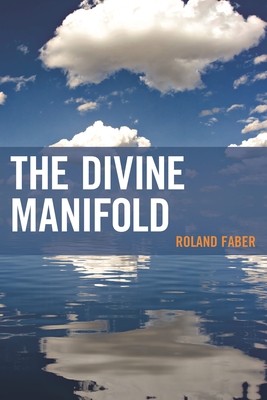
- We will send in 10–14 business days.
- Author: Roland Faber
- Publisher: Lexington Books
- ISBN-10: 073919139X
- ISBN-13: 9780739191392
- Format: 15.5 x 23.1 x 3.8 cm, kieti viršeliai
- Language: English
- SAVE -10% with code: EXTRA
Reviews
Description
The Divine Manifold is a postmodern enquiry in intersecting themes of the concept and reality of multiplicity in a chaosmos that does not refuse a dimension of theopoetics, but rather defines it in terms of divine polyphilia, the love of multiplicity. In an intricate play on Dante's Divine Comedy, this book engages questions of religion and philosophy through the aporetic dynamics of love and power, locating its discussions in the midst of, and in between the spheres of a genuine philosophy of multiplicity. This philosophy originates from the poststructuralist approach of Gilles Deleuze and the process philosophical inspirations of Alfred N. Whitehead. As their chaosmos invites questions of ultimate reality, religious pluralism and multireligious engagement, a theopoetics of love will find paradoxical dissociations and harmonizations with postmodern sensitivities of language, power, knowledge and embodiment. At the intersection of poststructuralism's and process theology's insights in the liberating necessity of multiplicity for a postmodern cosmology, the book realizes its central claim. If there is a divine dimension of the chaosmos, it will not be found in any identification with mundane forces or supernatural powers, but on the contrary in the absolute difference of polyphilic love from creativity. Yet, the concurrent indifference of love and power--its mystical undecidability in terms of any conceptualization--will lead into existential questions of the insistence on multiplicity in a world of infinite becoming as inescapable background for its importance and creativeness, formulating an ecological and ethical impulse for a mystagogy of becoming intermezzo.
EXTRA 10 % discount with code: EXTRA
The promotion ends in 21d.17:35:09
The discount code is valid when purchasing from 10 €. Discounts do not stack.
- Author: Roland Faber
- Publisher: Lexington Books
- ISBN-10: 073919139X
- ISBN-13: 9780739191392
- Format: 15.5 x 23.1 x 3.8 cm, kieti viršeliai
- Language: English English
The Divine Manifold is a postmodern enquiry in intersecting themes of the concept and reality of multiplicity in a chaosmos that does not refuse a dimension of theopoetics, but rather defines it in terms of divine polyphilia, the love of multiplicity. In an intricate play on Dante's Divine Comedy, this book engages questions of religion and philosophy through the aporetic dynamics of love and power, locating its discussions in the midst of, and in between the spheres of a genuine philosophy of multiplicity. This philosophy originates from the poststructuralist approach of Gilles Deleuze and the process philosophical inspirations of Alfred N. Whitehead. As their chaosmos invites questions of ultimate reality, religious pluralism and multireligious engagement, a theopoetics of love will find paradoxical dissociations and harmonizations with postmodern sensitivities of language, power, knowledge and embodiment. At the intersection of poststructuralism's and process theology's insights in the liberating necessity of multiplicity for a postmodern cosmology, the book realizes its central claim. If there is a divine dimension of the chaosmos, it will not be found in any identification with mundane forces or supernatural powers, but on the contrary in the absolute difference of polyphilic love from creativity. Yet, the concurrent indifference of love and power--its mystical undecidability in terms of any conceptualization--will lead into existential questions of the insistence on multiplicity in a world of infinite becoming as inescapable background for its importance and creativeness, formulating an ecological and ethical impulse for a mystagogy of becoming intermezzo.


Reviews